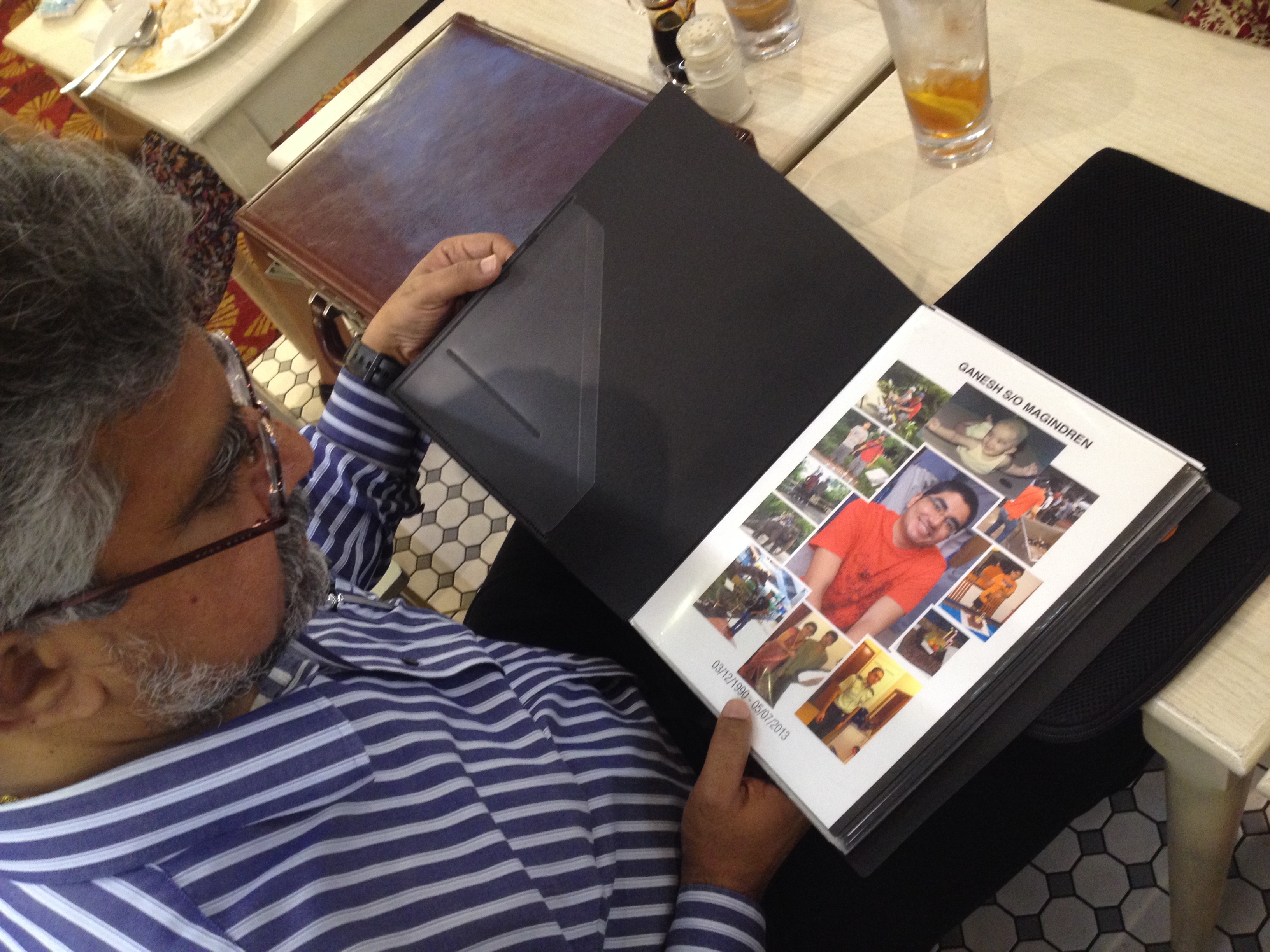Part 2 of our series on schizophrenia…
It was not only his son, NS man Ganesh Pillay, who suffered from schizophrenia. Magendran Reganathan’s wife is also afflicted. Now he wants his story to be heard and for people with mental illness to be treated with care and dignity. In his own words…
“When my wife (then girlfriend) was diagnosed with schizophrenia, I told her to stop taking her pills. I thought she would be fine.
“But her condition deteriorated. I would never tell my wife to not take her pills again.
“Every day, I took care of her. The moment I looked at her, I would know whether she was hearing voices or not. And I would take her home, away from our relatives. They still had not quite come to terms with my wife’s condition.
“My mother told me I was the crazy one in the relationship. She said: “Schizophrenia means you tear your hair out, and you are very untidy and you yell all the time.”
“I still cannot get her to think otherwise.
“Then my son was diagnosed with schizophrenia. There was this tremendous feeling of pity and pain, and worry about his future.
“But I knew I had to get him through it – the same way I got my wife through.
“And I did. I got him through his higher diploma.
“But he died shortly after.
“He died because too many people were uncertain about mental illness. He died because there were individuals who did not take schizophrenia seriously.
“Why are we like that?
“Because we do not talk about mental illness in the open; how can we expect people to show compassion to those with schizophrenia?
“In a society like ours, we are constantly striving to achieve one goal after another. There is already no time for ourselves, let alone time to understand mental illness.
“Until it becomes your problem- like in my case. And I want to tell you. People with schizophrenia are not weak in the head. They have abilities to work and complete tasks, like us. They just need time to do them.
“I see it my wife. I saw it in my son. These people are hurting mentally. But if you take the time to talk to them, be patient with them, you can save their lives.
“Before someone shares my son’s fate, let’s talk about schizophrenia.
“We need a dialogue among army officers. Give me the assurance no one will suffer like my son again. The medical directive must ensure schizophrenic soldiers are handled with care.
“We need a dialogue among Singaporeans. We need compassionate Singaporeans. Don’t turn away from them. A young man has died.
“I once said to my son, “one day you will make me proud.”
“Today I will make him proud. I will fight for my son’s story to be heard, to be acknowledged. People with mental illness should be allowed to live normal lives.”

